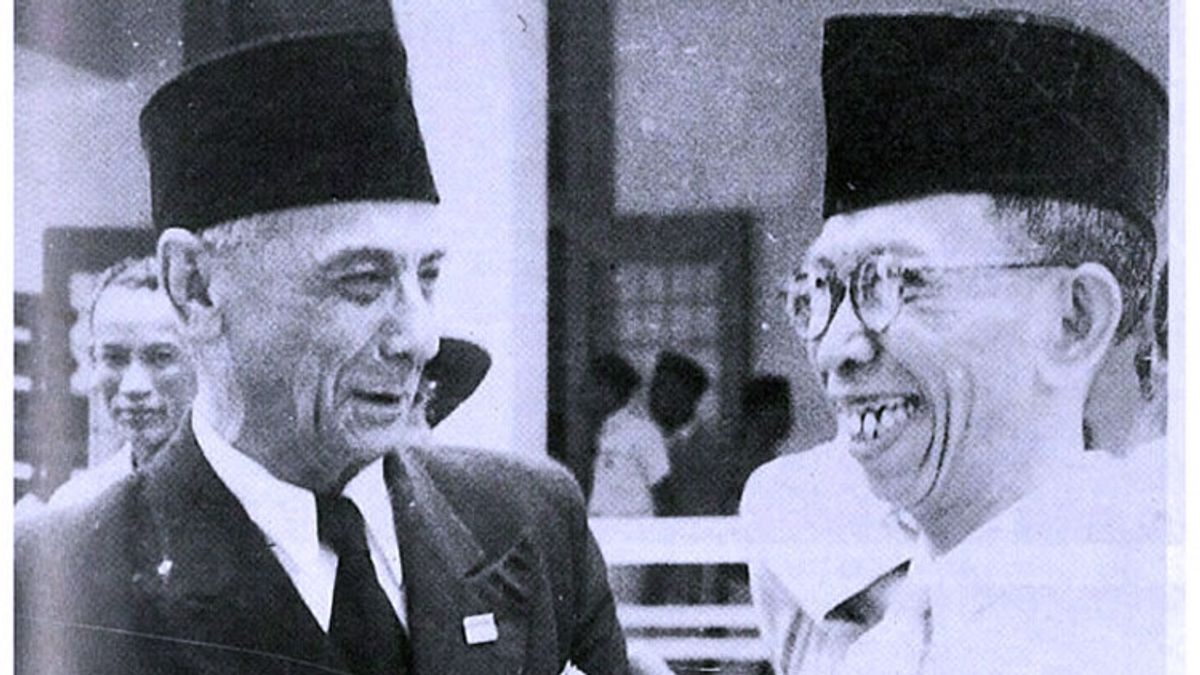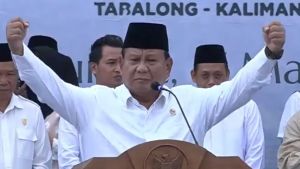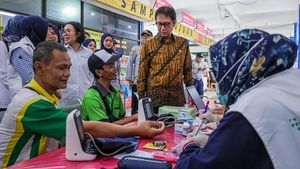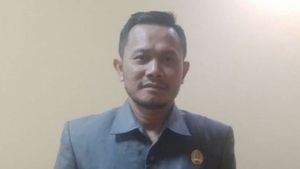JAKARTA History today, 75 years ago, January 4, 1947, Ernest Douwes Dekker visited the State Palace, Gedung Agung, Yogyakarta. His arrival was greeted with emotion by other national figures. From Soekarno to Ki Hajar Dewantara.
As an appreciation for his great contribution, Bung Karno gave a new name to Ernest: Danudirdja Setiabudi. Previously, Ernest was known as a mentor and political inspiration for Indonesian independence fighters. Soekarno and Tjokroaminoto, especially.
Ernest may grow and grow as an Indo. However, his soul, if enveloped, cannot be separated in the flames of the struggle of the bumiputras to release the shackles of colonialism. He was able to inspire all Bumiputra Doctor School students, STOVIA to dare to fight against Dutch injustice.
In that case, Ernest then became good friends with STOVIA students. Tjipto Mangoenkoesoemo and Soewardi Soerjaningrat (later known as Ki Hajar Dewantara), his name. The three of them later became known as the Three Serangkai.
The three of them established the most famous political vehicle: Indische Partij (Indies Party). The party, which was founded in 1912, became the space for the citizens of the Dutch East Indies (now: Indonesia) indiscriminately - to fight against policies that harm the invaders.
Ernest dared to put up a body for that. Even though the Indian Party is often labeled as the party of the radicals. However, the bumiputra see it as something else. The presence of the Indian Party was actually able to inspire the struggle for independence. This is because the East Indies party became the first party to instill Indonesian nationalism.
In the early 1910s, when Ernest founded the Indian Party, it was very difficult to imagine people understanding giant meetings, political parties, journalists. Together with several Indo and Chinese, Ernest taught these things to the citizens of the Dutch East Indies, it doesn't matter if he is an Indo, bumiputra, or China.
"He led De Express. A Dutch-speaking newspaper published in Bandung and shows how anti-government political journalism should be," said Takashi Shiraishi in the book 1000 Years of the Archipelago (2000).
Ernest's influence on Indonesian freedom fighters is huge. The famous names such as Soekarno and Haji Omar Said (HOS) Tjokroaminito made Ernest an inspiration. Moreover, Ernest dared to donate his entire life on the path of struggle.
Instead, he chose prison and exile rather than approaching the Netherlands. He was exiled abroad twice: to the Netherlands and Suriname. The assessment made Ernest not have time to witness the proclamation of Indonesian independence on August 17, 1945.
He only returned home when Indonesia had entered a time of revolution. He wanted to meet directly with his comrades in Yogyakarta on January 4, 1947. Ernest's meeting and other freedom fighters took place emotionally at the Great Building, Yogyakarta.
Bung Karno did not forget to give Ernest a new name as a form of appreciation. The name is Danudirdja Setiabudhi. Then, he was appointed as Minister of State and also Bung Karno's adviser.
Upon arrival at Tanjung Priok, he continued his journey to Yogyakarta, and immediately met Bung Karno at the State Palace on January 4, 1947. At the Palace at that time, there were a number of figures waiting for him: Bung Karno, Bung Hatta, Ki Hajar Dewantara, Radjiman Wediodiningrat, and Arudji Kartawinata. Soekarno welcomed his arrival with tight hugs and warm greetings: Welcome, Nest.
"Ernest answered jokingly: I am happy that in old days I was able to return among the brothers to offer my services to the Republic, even as an ordinary soldier. Because I am a sniper. Bung Karno then gave him the name Danudirdja Setiabudi. Danudirdja means a strong bull, while Setiabudi means a strong and loyal soul, "explained Yudi Latif in the book Matata Air Keteladanan: Pancasila in Acts (2014).
The English, Chinese, Japanese, Arabic, and French versions are automatically generated by the AI. So there may still be inaccuracies in translating, please always see Indonesian as our main language. (system supported by DigitalSiber.id)








